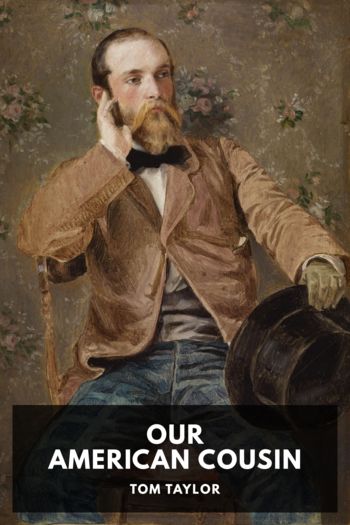Daughters of the Summer Storm by Frances Statham (best sci fi novels of all time .TXT) 📗

- Author: Frances Statham
Book online «Daughters of the Summer Storm by Frances Statham (best sci fi novels of all time .TXT) 📗». Author Frances Statham
"I trust you will feel much better, senhora, after you have rested."
"Thank you, Maranta."
The black stallion was covered with foam, and the conde, climbing from the saddle, handed the reins to a servant who led the animal away to be unsaddled and cooled down.
Then, with the condessa and Dona Isobel taken care of, Ruis gave orders for the carriage to be moved—not realizing that Maranta had stayed in the courtyard and was now seeking to unfasten Fado's cage from the back of the carriage.
As the vehicle rolled away, leaving Maranta alone on the pavement, she called out, "Wait, Rico," and hurried to catch up with the disappearing carriage.
The conde's hand reached out and stopped her. "What is so important that you have to chase the carriage, menina?"
"Fado," she gasped. "He is still tied to the back."
"Your little bird will be rescued, Maranta," he said gently. "Go now with Pará. She will show you to your room."
Much later they sat at the table in the huge dining room—the conde, Dona Isobel, and Maranta—with the empty chair at the other end of the table where the condessa should have been. Silver glittered under the candles' power, and dancing shadows appeared on the fine linen cloth with its inlay of delicate lace.
Maranta sat in silence, toying with the doce da marmelo, the hard quince jelly that was served as the last course. She waited for the conde to indicate that the meal was over; for it was very late and she wanted to escape the oppressive air that had threatened to ruin her dinner.
Surrounded by the accouterments of his wealth, the conde had subtly changed. He seemed more remote and restrained than ever. Gone were the rough clothes he had worn on the journey from Santos to São Paulo. Gone was the sense of camaraderie between them when she had ridden on the black stallion with him.
A mere change of clothes, and Ruis had become the imperious conde again, the proud head of the Monteiro family—and absolute ruler in his own domain.
At last, Ruis moved his chair back, giving the signal that the meal was over. He stood up while Maranta with her white shawl draped over her shoulders followed Dona Isobel from the room.
The man took his seat again, and as Maranta lingered in the hall, she saw the conde remove a charuto from the box offered him by the servant standing beside the chair, and hold it to his nose for a moment before lighting it with the candle. Seeing him in his gold velvet chair that almost resembled a throne made Maranta feel very small and insignificant.
Pale silks and brocades draped the huge bed where Maranta was to sleep. Already, the covers had been turned down and a gown laid out for her.
For a week, the conde had said. That was how long they would stay in São Paulo before leaving on the last segment of their journey—up the Tietê River to the fazenda. And if the condessa were not well enough to travel by then, they would remain in the city for a longer period of time.
Maranta walked about the room, touching the fine draperies and unconsciously rearranging the objects on the table beside the gilt chair. Next to her bed, her jewelry case lay, and taking off the locket from around her neck, Maranta opened the case to place the locket inside. On top lay the elaborate cross of pearls and diamonds that the condessa had given her on her eighteenth birthday.
For the first time, a desire to try it on came over her. Would it make her look as imperious as the conde—with their fine family jewelry around her neck?
Maranta unclasped it, and when she had put it on, she tiptoed to the small mirror to see the effect. The magnificence overwhelmed her. No—she still looked the same. She was Maranta Tabor. And the necklace looked as if it belonged to someone else.
If she had become a nun, her cross would have been made of silver or some lesser metal—much more suitable—and she would be dressed in black, not white, as she was tonight—black like Dona Isobel and the condessa.
Maranta wandered around the room, forgetting about the necklace, since her mind had returned to the sick woman. Hastily, Maranta put her shawl about her shoulders, and picking up a candle, she left the bedroom to seek out the family chapel that was attached to the house. She had seen it earlier that evening when she had lost her way to the dining room.
No one was about in the hall to deter her or give her directions. Down the marble steps she went, intent on remembering the way she had gone earlier, walking through the maze of corridors toward the back of the house, stopping and then changing directions until finally she saw it—the door still ajar, and the candle burning upon the altar, with the Blessed Virgin smiling in welcome.
Maranta took the shawl from around her shoulders and placed it over her long, black hair. Reverently she carried the candle and approached the altar where she knelt.
Her lips moved in silence, and for a long time she remained, her knees sheltered from the cold marble floor by the velvet cushion. She prayed not only for the condessa, but for her own family as well. And with the recalling of each one dear to her, her heart grew sad and a tear escaped and dropped onto the velvet cushion.
There was a noise behind her, and alarmed, Maranta quickly stood up, searching the shadows. She was not alone, and her dark eyes, resembling limpid pools, widened in fright.
"You do not have to be afraid, menina," he said, coming to stand before her.
In relief, she recognized the conde, who gazed at her in sympathy, taking in the tears that still clung to her lashes. But his sapphire eyes, latching onto the cross at her breast, underwent a sudden transformation. He took a step toward her, and in a hoarse voice





Comments (0)